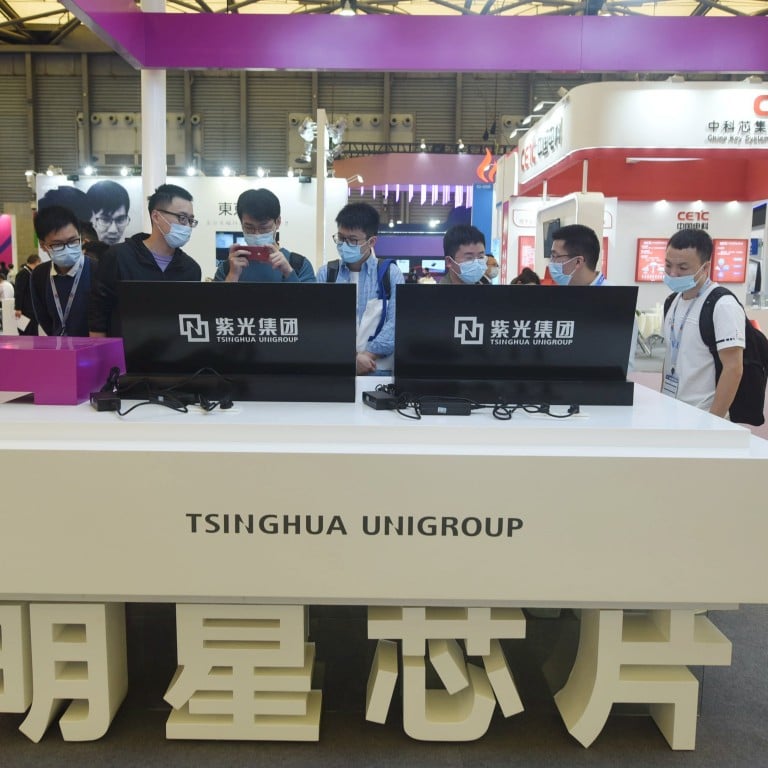
US-China partnership in key IT equipment joint venture draws to end after two decades, as Hewlett Packard walks away
- H3C was originally incorporated in 2003 as a joint venture between Huawei Technologies Co and US telecoms firm 3Com
- The proposed deal, subject to regulatory approval, comes one year after a semiconductor entity affiliated with H3C was added to the US Entity List
A major US-China joint venture in IT equipment, an example of close technology cooperation between the two countries over the last two decades, is coming to an end in another sign of further decoupling between the world’s two largest economies.
H3C, currently a joint venture between Texas-based Hewlett Packard Enterprise (HPE) and Beijing-based Tsinghua Unigroup, will become 100 per cent controlled by the Chinese owner which plans to acquire a 49 per cent stake from its US partner, according to a corporate filing by Tsinghua Unigroup to the Shanghai Stock Exchange on Wednesday.
H3C was originally incorporated in 2003 as a joint venture between Huawei Technologies Co and US telecoms firm 3Com, which took control of H3C after acquiring Huawei’s shares in the company. In 2010, Hewlett Packard bought 3Com for US$2.7 billion and took over the operations of the old H3C, making it a sub-brand, and sold its 51 per cent stake to Tsinghua Unigroup to form the current arrangement in 2016.
Huawei posts flat 2022 revenue, aims for ‘quality’ survival in coming year
HPE could sell its H3C shares for a cash sum at a price per share of 15 times the profit of H3C for the period ending April 30, 2022, according to a filing by HPE to the US Securities and Exchange Commission on Tuesday.
The proposed deal, which is pending regulatory approval, comes one year after a semiconductor entity affiliated with H3C was added to the US Entity List, a trade blacklist.
The ownership changes at the IT equipment maker over the last two decades reflect the increasingly uneasy relationship between China and US as they vie for technological supremacy.
Foxconn’s proposed investment in China chip conglomerate likely to be blocked
However, seven years later, China-US tech tensions have elevated, geopolitical tensions have become more acute, and decoupling moves have accelerated.
In the new deal, Unisplendour International Technology (UNIS), a wholly-owned subsidiary under Tsinghua Unigroup, will buy the 49 per cent stake from HPE, after which there will be no US ownership.
The buyout of H3C could significantly boost the earnings of UNIS, which currently counts its H3C subsidiary as a core contributor to profits, according to a research note by GF Securities on Wednesday.
Last month the US added top Chinese flash memory chip maker Yangtze Memory Technologies Co and three dozen other Chinese entities to an export blacklist, citing concerns that Beijing was using commercial technologies to modernise its military.

